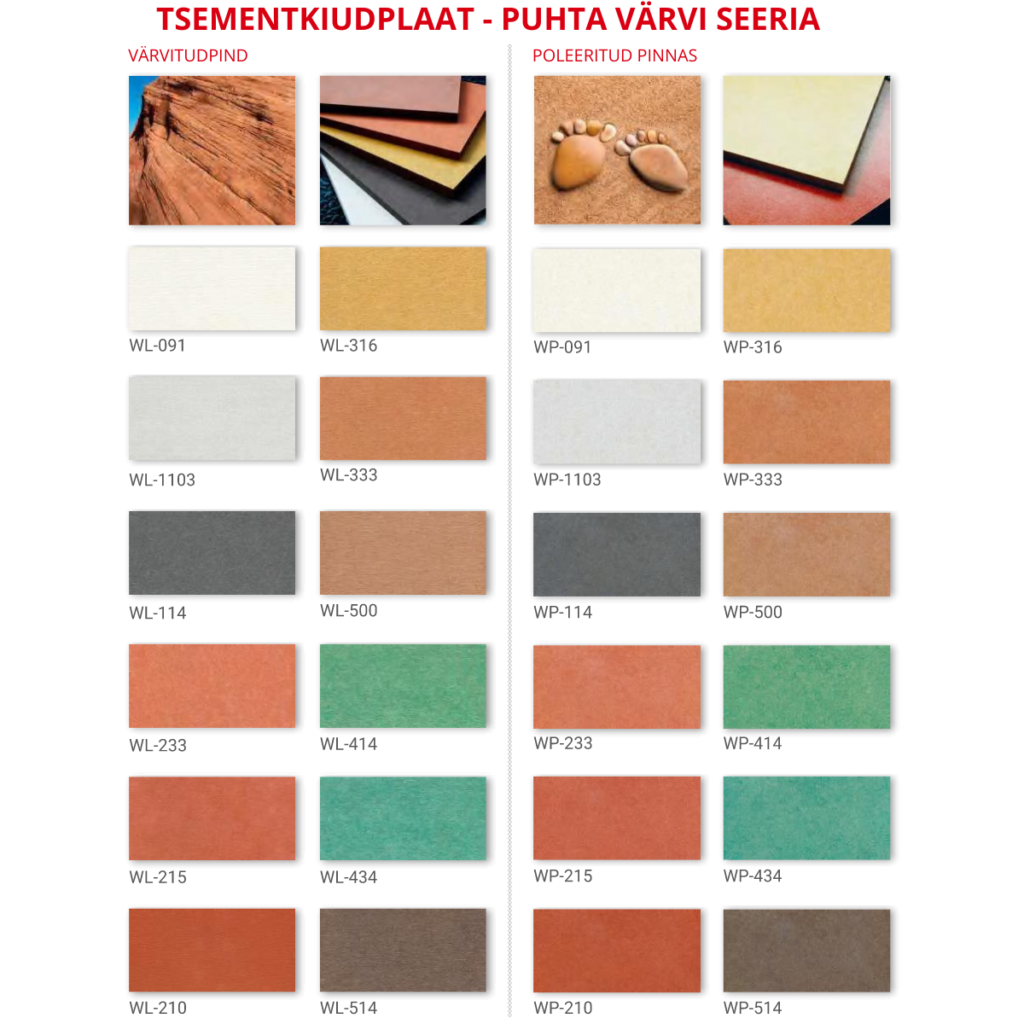Cement Fibreboard – The pure colour series is a heat and steam cured structural material that is multi-coloured, multi-patterned, high density and has excellent weather resistance. Our tile is made from Portland cement, plant fibres, quartz and other natural minerals.
Cement fibreboard in the pure colour series is widely used for exterior finishes in industrial, commercial and residential buildings. However, the cement fibre board pure colour series is suitable for exterior renovation of old structures.
It is also used in damp places such as underground, tunnels, basements, etc.
The panel measures 2440 mm x 1220 mm, covering approximately 3m².
The average density of our fibre cement board is 1.45 g/cm³. A 9mm fibre cement tile weighs only 13.18 kg/m², while a 5.5 mm ceramic tile weighs 13.27 kg/m². Cement fibre slabs significantly reduce the negative impact of panels on buildings.
In addition, to ensure the safety of users, we attach metal hangers to prevent cracking or falling.
In accordance with C/T 564.1-2008 [Fibre reinforced calcium silicate board – Part 1: Non asbestos calcium silicate board ]. Put the cement fibre board in the freezer for 90 minutes [-20°C ~ 2°C] and then put it in water for 30 minutes (20° ~ 2°C). Repeat the process 25 times and make sure there are no cracks or delamination on the surface panels.
Minimum flexural strength of parallel fibres ≥ 15 MPa, maximum flexural strength of vertical fibres ≥ 20 MPa. In accordance with GB/T 15227-2007 test protocol [ Test method for air, water and wind pressure resistance for cut rail wall ], each panel should pass ±2500 Pa, ±3000 Pa, ±3500 Pa~±5500 Pa pressure tests within 10 seconds respectively. Cracks must not occur until the pressure reaches 5390 Pa.
Cement fibre board – The pure colour collection has a low thermal conductivity ( around 0.35 W/m – K ). This controls heat loss and helps to keep the room at an adequate temperature all year round.
For ceramics, 1200 °C is required. To produce 1m² of ceramics, it typically takes 6.8kg of coal and 5.0kW/h of electricity. In contrast, high temperatures are not necessary for the production of cement fibre tiles. Autoclaving at 200 °C costs only 0.8 kg of coal and 1.2 kW/h, to produce 1 m² Merrin tile.
Compared to ceramics, fibre cement tiles save 6 kg of coal and 3.8 kW/h of power per square metre.
This is why fibre cement tiles are much more environmentally friendly than ceramics.
The water resistance of the panels can effectively prevent liquid penetration. Due to the lotus effect, raindrops can accumulate and collect dust soon after falling on the panels.
If you would like more information or advice, please contact us and we will help you find the right solution.
See also other fibre cement slabs in our e-shop.
Ask for an installation quote accepted from the company.

Dreams that last
Copyright © 2024 Prome
Contact